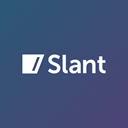Discover the Best Aether Alternatives for Private, Decentralized Communities
Aether is a unique peer-to-peer platform known for its ephemeral, self-governing communities, privacy-sensitive design, and transparent, democratic moderation. It offers a space where discussions are time-limited (6 months by default), promoting freedom to express evolving opinions without long-term digital footprints. However, its specific design might not suit everyone's needs. If you're looking for a similar focus on community, privacy, and user control, but perhaps with different features or retention policies, exploring an Aether alternative is a great idea.
Top Aether Alternatives
While Aether offers a distinct approach to online communities, many other platforms provide robust features for discussion, content sharing, and community building, often with a strong emphasis on user privacy and control. Here are some of the best alternatives that might better suit your needs:

Reddit is a widely popular social news aggregation and discussion website, offering a vast array of communities (subreddits) for nearly every topic imaginable. Like Aether, it's community-based and features a strong commenting system and voting, but content is persistent. It's a freemium platform available on Web, Android, iPhone, Android Tablet, and iPad, making it highly accessible for general community discussions and content sharing.

Stack Exchange
Stack Exchange is a network of expert Q&A sites covering diverse topics, from programming to cooking. While not focused on ephemeral content like Aether, it excels in structured, high-quality information exchange through its Q&A format. It's a free platform available on Web, Android, iPhone, Android Tablet, and iPad, making it an excellent Aether alternative for those seeking focused knowledge-sharing communities.

Minds
Minds is a free and open-source social network that emphasizes free speech, anti-censorship, and privacy-focused features like encrypted chat. Unlike Aether's ephemeral nature, Minds allows users to launch their digital brand and social network, with content persistence. It's available on Web, Android, and iPhone, and features decentralization, encryption, and a point system, making it a strong Aether alternative for those prioritizing freedom and privacy in a social network.

Slant
Slant is a product recommendation community that focuses on helping users find the best products, apps, or games through pros and cons lists and community-driven Q&A. While not a general discussion platform like Aether, it shares the community-based approach to information sharing. It's a free web-based platform, offering a useful Aether alternative for specific recommendation needs.

Friendica
Friendica is a distributed social network with a strong focus on decentralization, privacy, and interoperability. As an open-source, self-hosted alternative available on Linux, BSD, and PHP, it aligns with Aether's privacy-sensitive and peer-to-peer philosophy, but offers persistent content and broader social networking features like group messaging and integration with other federated networks.

Steemit
Steemit is a non-censored social platform built on blockchain, where users are incentivized with cryptocurrency for contributing and curating content. Like Aether, it emphasizes user control and the community's role in determining content value through voting. It's a free, open-source web platform, making it a compelling Aether alternative for those interested in decentralized, incentivized content creation and social interaction.

Voat.co
Voat.co is a censorship-free community platform where users submit, organize, moderate, and vote on content, with the potential to earn for their contributions. It shares Aether's focus on user-driven content and moderation, with a strong emphasis on free speech. It's a free web-based social network, offering a similar community experience with content persistence.

Super User
Super User, part of the Stack Exchange network, is a free Q&A site specifically for computer enthusiasts. While its focus is narrower than Aether's general communities, it provides a structured, high-quality Q&A environment for specific technical discussions, making it a valuable Aether alternative for those seeking expert answers on computer-related topics.

ZeroMe
ZeroMe is a social network operating on the distributed P2P ZeroNet, offering a decentralized and peer-to-peer experience akin to Aether's underlying technology. As a free and open-source platform available on Mac, Windows, Linux, and Web, it provides a similar privacy-focused environment for social interaction without central servers, but with persistent content.

Digg
Digg focuses on delivering the most interesting and talked-about stories on the web, offering a curated news aggregation experience. While not a direct community forum like Aether, it provides a platform for discovering and engaging with content, with features like news aggregation and offline reading. It's a free platform available on Web, iPhone, and iPad, serving as an Aether alternative for news and content discovery rather than direct community creation.
Each of these platforms offers a distinct approach to online communities, privacy, and content management. We encourage you to explore them based on your specific needs, whether you prioritize decentralization, a strong Q&A format, free speech, or general social networking features, to find the best fit for your online interactions.